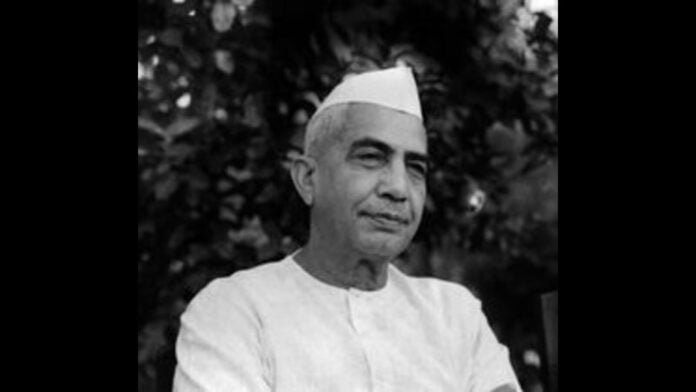Indian Prime Minister Narendra Modi on Friday declared that former PM Chaudhary Charan Singh will be consulted with India’s highest civilian honor ‘Bharat Ratna’. Other than Singh, ex-PM PV Narasimha Rao and agricultural scientist MS Swaminathan will also be conferred with the top honor.
In a heartfelt response to the announcement made by Prime Minister Narendra Modi, Rashtriya Lok Dal leader Jayant Chaudhary shared his elation over the posthumous conferral of the Bharat Ratna on his grandfather, former Prime Minister Chaudhary Charan Singh. The award, India’s highest civilian honor, was bestowed in recognition of Singh’s lifelong dedication to the country’s agricultural community and his significant contributions to national development.
Prime Minister Modi, in a message shared on social media, highlighted Chaudhary Charan Singh’s exceptional service to the nation, emphasizing his relentless advocacy for the rights and welfare of farmers throughout his illustrious career. Singh’s roles as the Chief Minister of Uttar Pradesh, the Home Minister, and even as a Member of the Legislative Assembly were marked by his unwavering commitment to nation-building and his staunch opposition to the Emergency, reflecting his deep commitment to democratic values and the well-being of the farming community.
This year, the Bharat Ratna has also been awarded to former Prime Minister PV Narasimha Rao and renowned agricultural scientist Dr. MS Swaminathan, acknowledging their pivotal roles in the nation’s progress. The honor for Singh comes amidst reports of the Rashtriya Lok Dal’s potential alliance with the BJP-led National Democratic Alliance ahead of the 2024 Lok Sabha elections, a speculation that Jayant Chaudhary has addressed with expectations of respect within the opposition’s coalition.
About Former PM Chaudhary Charan Singh
Chaudhary Charan Singh, a prominent figure in Indian politics, served as the Prime Minister of India from July 1979 to January 1980. Born on December 23, 1902, in Noorpur, Uttar Pradesh, Singh was a leader deeply rooted in rural India and is often remembered for his dedication to the welfare of farmers and the agricultural sector.
He earned a postgraduate degree in agricultural science before choosing to pursue a career in law. Singh’s political career began in the pre-independence era, and he was significantly influenced by Mahatma Gandhi’s philosophy. He was actively involved in the Indian independence movement, participating in civil disobedience campaigns and enduring imprisonment as a result.
After independence, Singh’s political journey saw him serving in various key roles, including as the Chief Minister of Uttar Pradesh. He was instrumental in formulating and implementing policies aimed at improving the lives of the rural population, especially farmers. Singh’s advocacy for the abolition of the zamindari system and his efforts to promote land reforms are among his most notable contributions to Indian society.
Chaudhary Charan Singh’s tenure as Prime Minister, although brief, was marked by his commitment to the agrarian community and efforts to address their issues. He is credited with the introduction of several policies aimed at alleviating the hardships faced by farmers, including measures to ensure fair prices for their produce and to improve credit facilities.
Singh’s legacy extends beyond his political achievements; he is venerated as a champion of the rural and agrarian cause. His birth anniversary is celebrated as Kisan Diwas (Farmers’ Day) in India, highlighting his enduring impact on the nation’s agricultural landscape.
Despite the brevity of his tenure as Prime Minister, Chaudhary Charan Singh’s influence on Indian politics and his dedication to the cause of the farmers have left an indelible mark on the country’s history. His contributions continue to be remembered and honored, reflecting his significant role in shaping the narrative of rural empowerment in India.


